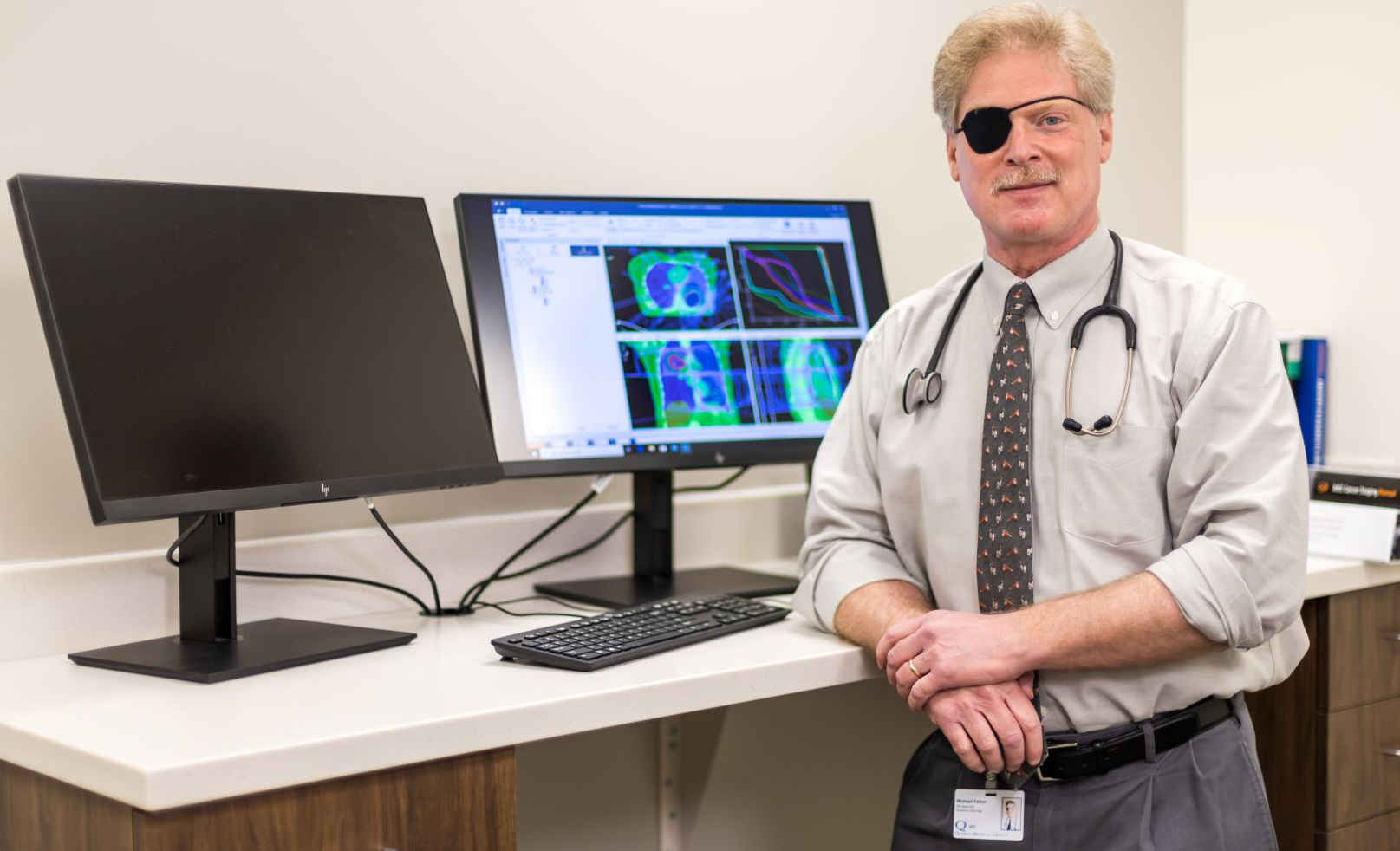Quincy Medical Group has new imaging tool improving staging of prostate cancer

QUINCY — Quincy Medical Group has added a diagnostic innovation known as the prostate-specific membrane antigen or PSMA PET scan that enables more precise detection of prostate cancer, leading to improved treatment for men.
September is Prostate Cancer Awareness Month. Other than skin cancer, prostate cancer is the most common cancer in American men. The American Cancer Society says an estimated 268,490 cases of prostate cancer will be diagnosed in 2022, with about 34,500 deaths
QMG Radiation Oncologist Dr. Michael Fallon said PSMA PET scans for prostate cancer provide better care for men initially diagnosed with prostate cancer or for men previously treated but have experienced a recurrence of the cancer. The PSMA PET technology provides detailed imaging allowing the QMG Care team to identify the extent of a patient’s prostate cancer.
“PSMA is a specific protein manufactured by prostate cells. Recent studies have shown that a radioactive solution designed to attach to the PMSA protein greatly improves the ability of the PET scan to detect prostate cancer,” Fallon said in a press release. “This allows the radiologist to detect prostate cancer earlier in its progression, improving the ability to accurately diagnose and treat prostate cancer.”
Traditional method of prostate cancer imaging is done with a fluorodeoxyglucose PET scan, which can detect small amounts of certain radioactive particles.
“PET scans take advantage of the different metabolic needs of different cells,” Fallon explained. “By injecting a radioactive tracer into the body and then imaging with a PET scan, radiologists can view the human body on a functional level. Areas which have taken up more tracer will have also taken up more radiation and are readily detected by the PET scan. These active areas will appear ‘brighter’ than less active areas.”
Beth Mealiff, nuclear medicine technologist with QMG, performs PET scans for patients. She said the PSMA PET scan improves care for patients, because it enhances the ability to find extent of a patient’s prostate cancer. Additionally the scan has less preparation for the patient.
“This technology is huge for prostate cancer patients because there is finally a tracer that targets prostate cancer cells specifically,” she said. “It also requires little to no preparation for the patient. Normally for a FDG PET scan, the patient must fast for six hours and have a blood sugar below 150 at the time of the test. PSMA PET does not require any fasting, which is a relief to a lot of patients.”
For more information on the QMG Cancer Institute, visit quincymedgroup.com/cancer.
Miss Clipping Out Stories to Save for Later?
Click the Purchase Story button below to order a print of this story. We will print it for you on matte photo paper to keep forever.

